
The horned lark or shore lark is a species of lark in the family Alaudidae found across the northern hemisphere. It is known as "horned lark" in North America and "shore lark" in Europe.
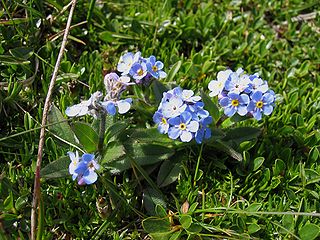
Myosotis alpestris or alpine forget-me-not is a herbaceous perennial plant in the flowering plant family Boraginaceae.

Chersotis is a genus of moths of the family Noctuidae.

Chersotis margaritacea is a moth of the family Noctuidae. It is found in Central and Southern Europe up to heights of 1,500 meters. Outside of Europe, it is found in Algeria, Morocco, Anatolia, Iran, Georgia, Armenia, Kazakhstan up to the Altai mountains.

Chersotis cuprea is a moth of the family Noctuidae.

Chersotis multangula is a moth of the family Noctuidae. It is found in the mountainous areas of Central and Southern Europe, Morocco, Turkey, Armenia, Iran, Syria, Lebanon and the Caucasus.
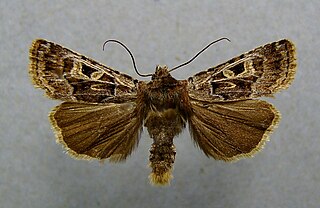
Chersotis ocellina is a moth of the family Noctuidae. It is found in the mountainous areas of Europe, especially in the Alps, the Apennine Mountains, Pyrenees and the Cantabrian mountains.
Chersotis ebertorum is a moth of the family Noctuidae. It is found in the eastern part of Turkey, Iran, Transcaucasia and the Levant.
Chersotis elegans is a moth of the family Noctuidae. It is found in the mountains of Spain, Greece, Turkey, the Caucasus, Lebanon, Israel and western central Asia.
Chersotis capnistis is a moth of the family Noctuidae. It is found in most parts of the Near East and Middle East, west central Asia, eastward to western China and Afghanistan, southward to north and southwest Iran and the Levant.

Chersotis fimbriola is a moth of the family Noctuidae. It is found in number of isolated populations from Austria to Spain, Morocco, Turkey, Iraq, Iran and Turkmenistan.
Chersotis laeta is a moth of the family Noctuidae. It is found in number of isolated populations from Greece to the Caucasus, Turkey, Lebanon, Israel and Syria.
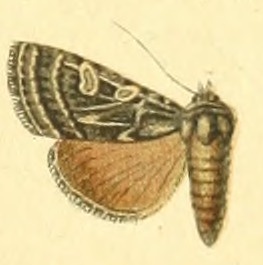
Chersotis poliogramma is a moth of the family Noctuidae. It is found in Kashmir.
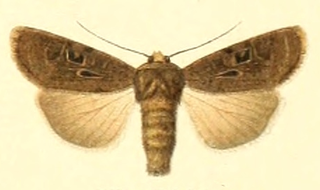
Chersotis andereggii is a moth of the family Noctuidae.

Chersotis larixia is a moth of the family Noctuidae. It is found in Spain, France, Switzerland, Italy and Sicily, Crete, Turkey, and east to Armenia, Azerbaijan, Syria, Iran, Lebanon, and Turkmenistan. In Europe, it is found in mountainous regions, like the Pyrenees, the Alps, and the Maritime Alps, up to heights of 2,000 meters.
Setina alpestris is a moth in the family Erebidae. It was described by Philipp Christoph Zeller in 1865. It is found in the Alps of Switzerland and Italy.

Chersotis rectangula is a moth of the family Noctuidae. It is the type species of the genus Chersotis.
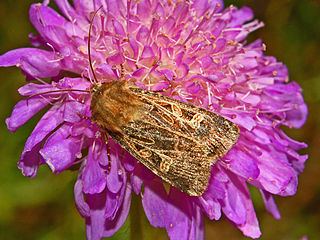
Chersotis alpestris is a moth of the family Noctuidae.
Noctuini is a tribe of owlet moths in the family Noctuidae. There are at least 520 described species in Noctuini.
Chersotis juncta, known generally as the stirrup dart moth or spear dart moth, is a species of cutworm or dart moth in the family Noctuidae. It is found in Europe and Northern Asia and North America.
This page is based on this
Wikipedia article Text is available under the
CC BY-SA 4.0 license; additional terms may apply.
Images, videos and audio are available under their respective licenses.













